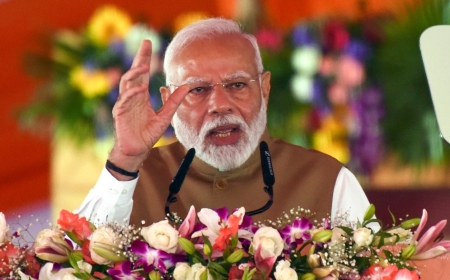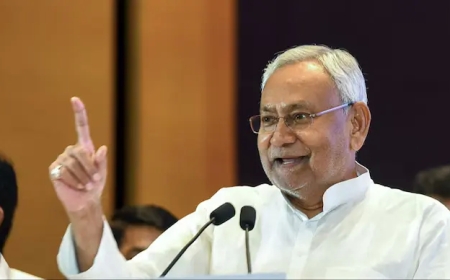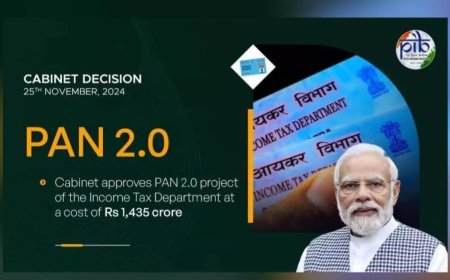What is Digital Personal Data Protection Bill, 2023
The Digital Personal Data Protection Bill, 2023 is India's comprehensive legislative framework aimed at safeguarding individuals' privacy in the digital age. Learn about its key provisions, implications, and how it addresses the challenges of data processing and security.

Digital Personal Data Protection Bill, 2023
Introduced on: 3rd August 2023
Lok Sabha Passes Digital Personal Data Protection Bill on 7th August
Rajya Sabha Passes Digital Personal Data Protection Bill on 9th August
In a world dominated by digital connectivity, the sanctity of personal data has emerged as a paramount concern, prompting nations to fortify their regulatory frameworks. In this context, India's unveiling of the Digital Personal Data Protection Bill, 2023 marks a pivotal moment, as the country endeavors to strike a delicate balance between individual privacy, data utilization, and government oversight.
An Inclusive Mandate: The Convergence of Digital Realities
The bill's far-reaching ambit is a defining feature, encompassing an array of digital personal data collected both online and offline, subsequently digitized. This all-encompassing approach underlines the intrinsic nature of data in the modern landscape, transcending conventional boundaries. Notably, the legislation extends its influence to data processing across international borders, provided it is linked to the provision of goods or services within India. This underscores a proactive grasp of the globalized data ecosystem and its implications for citizen rights.
Guardian of Consent: The Pillar of Data Protection
At the core of the bill lies a robust emphasis on consent as the bedrock of data processing. The bill mandates that personal data may only be processed for legitimate purposes upon securing informed consent from individuals. This stipulation not only preserves individuals' command over their personal information but also promotes transparency and accountability within the data ecosystem. The bill, however, judiciously accommodates exemptions for "legitimate uses," such as voluntary data sharing and state-driven data processing for licenses, permits, benefits, and services. This measured approach attests to a pragmatic alignment between individual agency and practical necessities.
Equilibrium of Rights and Responsibilities
A central facet of the bill pertains to the responsibilities imposed on data fiduciaries – entities responsible for data processing. These mandates encompass the accuracy, security, and purpose-driven deletion of data. By vesting data fiduciaries with these obligations, the legislation underscores the imperative of responsible data stewardship. The bill also bestows data principals – individuals whose data is processed – with an array of rights, including access to information, correction, erasure, and avenues for grievance resolution. These provisions empower citizens, fostering a climate of data sovereignty.
Navigating Complexity: Cross-Border Data Transfer and Exemptions
One of the bill's pivotal challenges lies in the intricate realm of cross-border data transfer. The legislation enables such transfers while vesting the government with authority to curtail such movements when necessary. This mechanism seeks to ensure that the sanctity of data protection extends beyond geographical confines, though pertinent questions regarding the evaluation of data protection standards in recipient countries linger.
A distinctive facet of the bill involves provisions for exemptions, particularly concerning data processing by government entities. While these exemptions acknowledge the necessity of certain functions, they simultaneously evoke considerations about potential encroachment and the need for robust checks to prevent unwarranted data exploitation.
The Role of the Data Protection Board of India
At the heart of the bill's enforcement strategy lies the establishment of the Data Protection Board of India. This governing body is tasked with overseeing compliance, levying penalties, and arbitrating disputes. The board's creation accentuates a commitment to diligent enforcement, even though concerns relating to its autonomy arise due to the relatively brief tenures of its members.
Comprehensive Evaluation and Ongoing Dialogue
The introduction of the Digital Personal Data Protection Bill, 2023 marks a decisive stride in the realm of data governance. However, pertinent discussions surrounding specific aspects endure. The bill's exemptions for state data processing in the interest of national security, coupled with potential privacy infringements, warrant meticulous scrutiny. Furthermore, the bill's omission of provisions addressing data processing risks and harms, as well as the absence of rights such as data portability and the right to be forgotten, underscore the necessity for a comprehensive perspective.
In a swiftly evolving digital landscape, the equilibrium between data-driven progress and individual rights is a nuanced endeavor. As the bill advances toward implementation, it beckons continued exploration and engagement. The Digital Personal Data Protection Bill, 2023 stands as a pivotal stride forward, beckoning a broader discourse on striking the optimal balance between innovation, privacy, and governance.
Frequently Asked Questions (FAQs) About India's Digital Personal Data Protection Bill, 2023
- What is the Digital Personal Data Protection Bill, 2023?
The Digital Personal Data Protection Bill, 2023 is a proposed legislative framework in India aimed at safeguarding the privacy and rights of individuals in the context of digital personal data processing. It sets forth rules, obligations, and rights for entities handling personal data, ensuring its secure and responsible management. - Why was the Digital Personal Data Protection Bill introduced?
The bill was introduced to address the growing concerns related to the handling of personal data in the digital age. With the rapid advancement of technology and increased data usage, there was a need for a comprehensive legal framework to protect individuals' privacy and regulate data processing practices. - What types of data does the bill cover?
The bill covers a wide range of digital personal data, both collected online and offline data that has been digitized. It also applies to data processing activities outside India if they are related to offering goods or services within the country. - What role does consent play in the bill?
Consent is a crucial element of the bill. Personal data can only be processed for legitimate purposes with the informed consent of the individual. The bill outlines the conditions under which consent is required and provides exemptions for certain legitimate uses. - What rights does the bill grant to individuals?
The bill grants several rights to individuals, including the right to access information, seek correction and erasure of personal data, nominate someone to exercise their rights in case of incapacity, and a mechanism for grievance redressal. - What are data fiduciaries?
Data fiduciaries are entities responsible for processing personal data. They are obligated to ensure the accuracy, security, and purpose-driven deletion of data. - How does the bill address cross-border data transfer?
The bill allows for cross-border data transfer while enabling the government to restrict such transfers to countries that meet specific data protection standards. This aims to ensure that personal data is adequately protected even when it crosses international borders. - Is there any oversight mechanism in place?
Yes, the bill proposes the establishment of the Data Protection Board of India. This board will oversee compliance, impose penalties for violations, and adjudicate disputes related to data protection. - What are the concerns related to the bill?
Some concerns include the potential for exemptions granted to government entities to lead to excessive data collection and processing, potential violations of the right to privacy, the absence of provisions addressing data processing risks and harms, and the omission of rights such as data portability and the right to be forgotten. - What's the timeline for the bill to become law?
The bill was introduced in August 2023 and has been passed by both the Lok Sabha and the Rajya Sabha. It is currently awaiting the President's assent before becoming law. - How will the bill impact businesses and individuals?
The bill will impose new obligations on businesses that handle personal data, requiring them to ensure data accuracy, security, and responsible processing. For individuals, it will provide greater control over their data and avenues for seeking redressal in case of data mishandling. - How does the bill compare to international data protection standards?
The bill reflects India's effort to align with global data protection norms. While it shares similarities with regulations such as the European Union's General Data Protection Regulation (GDPR), there are also unique provisions tailored to India's context.
What's Your Reaction?
 Like
0
Like
0
 Dislike
0
Dislike
0
 Love
0
Love
0
 Funny
0
Funny
0
 Angry
0
Angry
0
 Sad
0
Sad
0
 Wow
0
Wow
0




































































